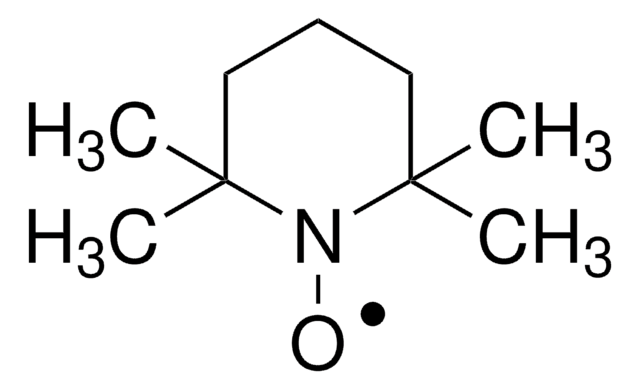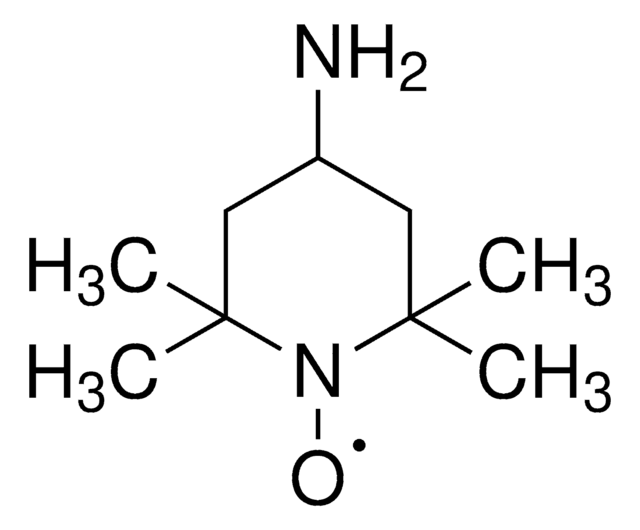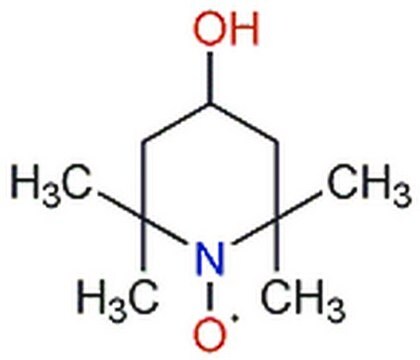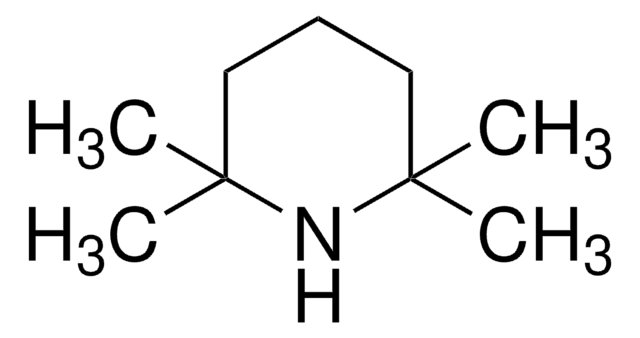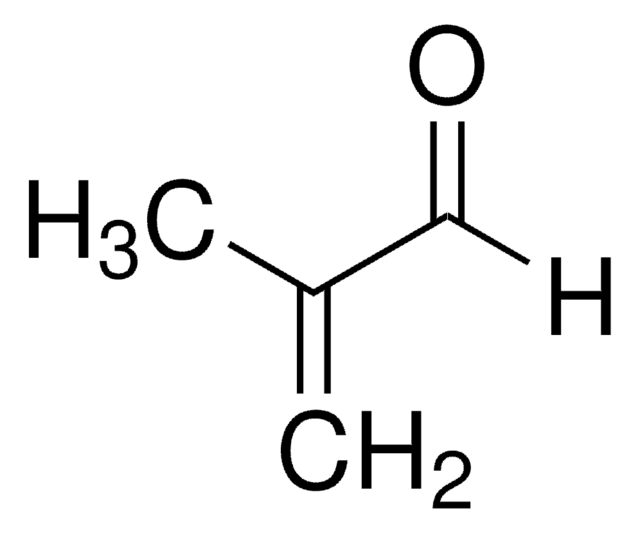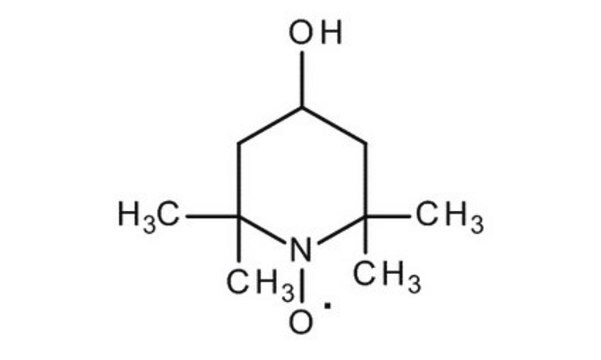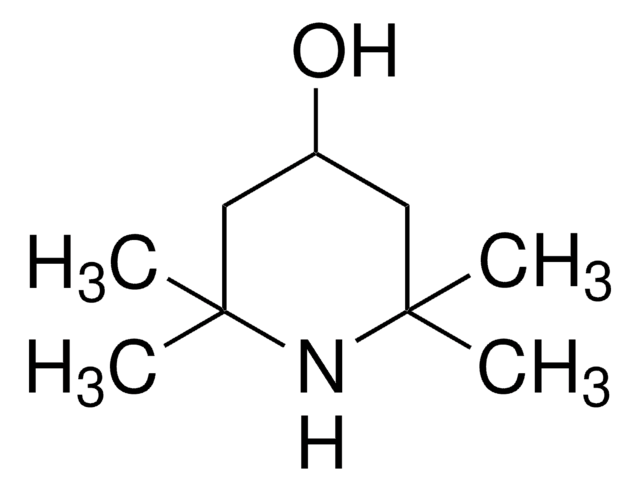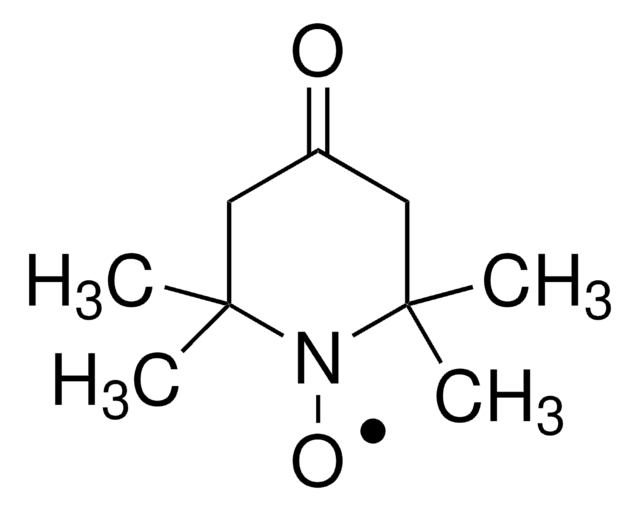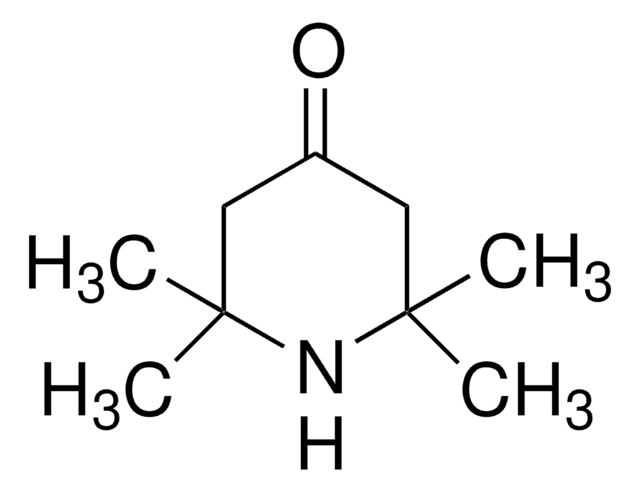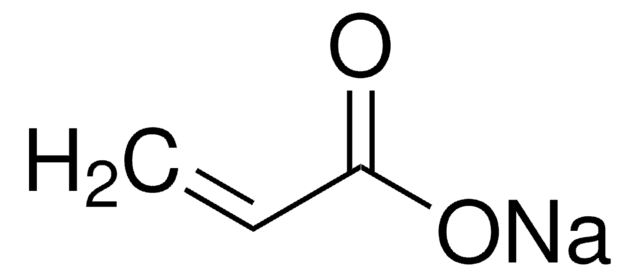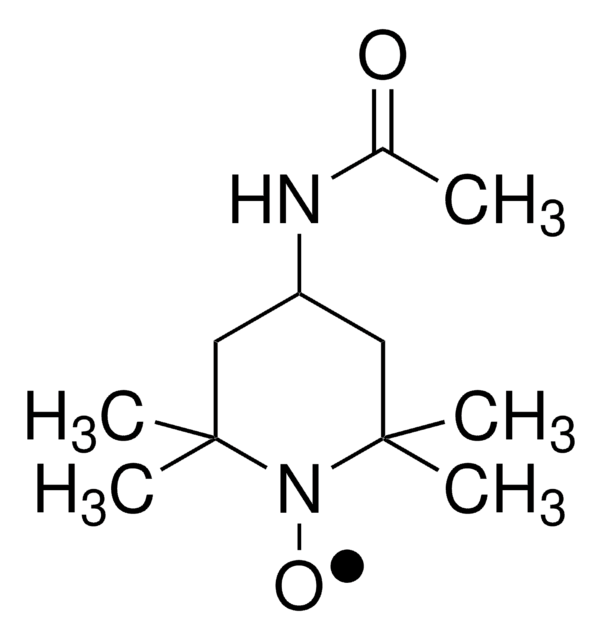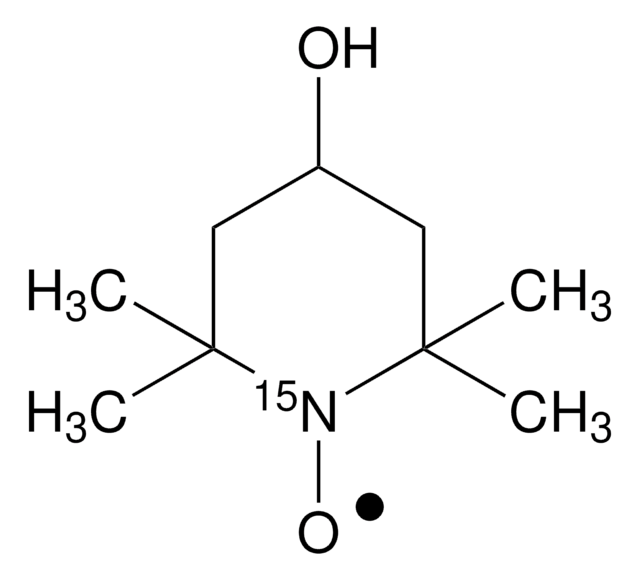176141
4-Hydroxy-TEMPO
95%
Synonym(s):
4-Hydroxy-2,2,6,6-tetramethylpiperidine 1-oxyl, TEMPOL
About This Item
Recommended Products
Assay
95%
form
solid
composition
Carbon content, 60.6-65.0%
Nitrogen content, 7.8-8.4%
mp
69-71 °C (lit.)
functional group
hydroxyl
storage temp.
2-8°C
SMILES string
CC1(C)CC(O)CC(C)(C)N1[O]
InChI
1S/C9H18NO2/c1-8(2)5-7(11)6-9(3,4)10(8)12/h7,11H,5-6H2,1-4H3
InChI key
UZFMOKQJFYMBGY-UHFFFAOYSA-N
Looking for similar products? Visit Product Comparison Guide
General description
Application
Signal Word
Danger
Hazard Statements
Precautionary Statements
Hazard Classifications
Acute Tox. 4 Oral - Eye Dam. 1 - STOT RE 2 Oral
Target Organs
Liver,spleen
Storage Class Code
11 - Combustible Solids
WGK
WGK 1
Flash Point(F)
294.8 °F - DIN 51758
Flash Point(C)
146 °C - DIN 51758
Personal Protective Equipment
Choose from one of the most recent versions:
Certificates of Analysis (COA)
Don't see the Right Version?
If you require a particular version, you can look up a specific certificate by the Lot or Batch number.
Already Own This Product?
Find documentation for the products that you have recently purchased in the Document Library.
Customers Also Viewed
Articles
TEMPO (2,2,6,6-Tetramethylpiperidinyloxy or 2,2,6,6-Tetramethylpiperidine 1-oxyl) and its derivatives are stable nitroxy radicals used as catalysts in organic oxidation reactions. TEMPO was discovered by Lebedev and Kazarnovskii in 1960. The stable free radical nature of TEMPO is due to the presence of bulky substituent groups, which hinder the reaction of the free radical with other molecules.
Our team of scientists has experience in all areas of research including Life Science, Material Science, Chemical Synthesis, Chromatography, Analytical and many others.
Contact Technical Service